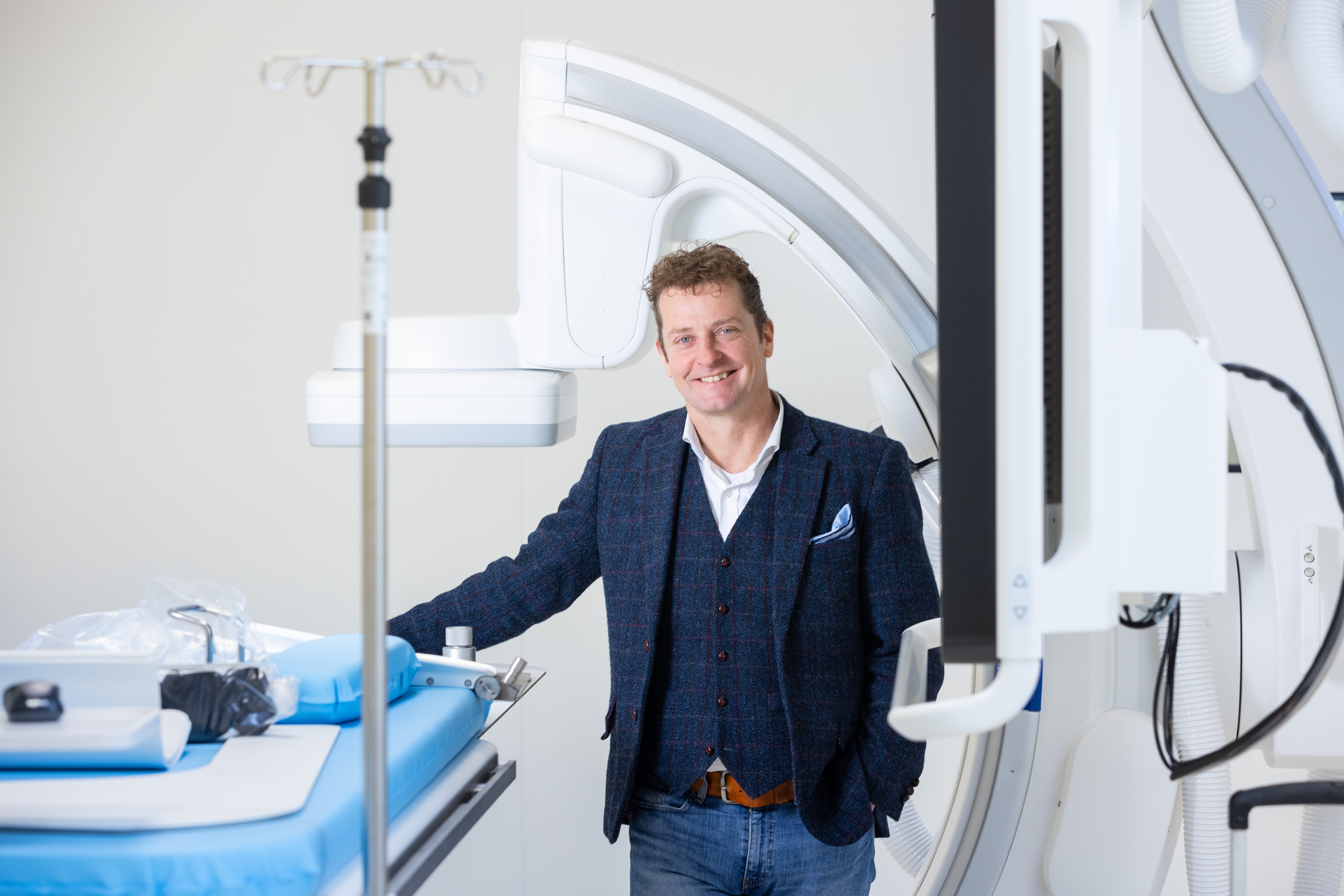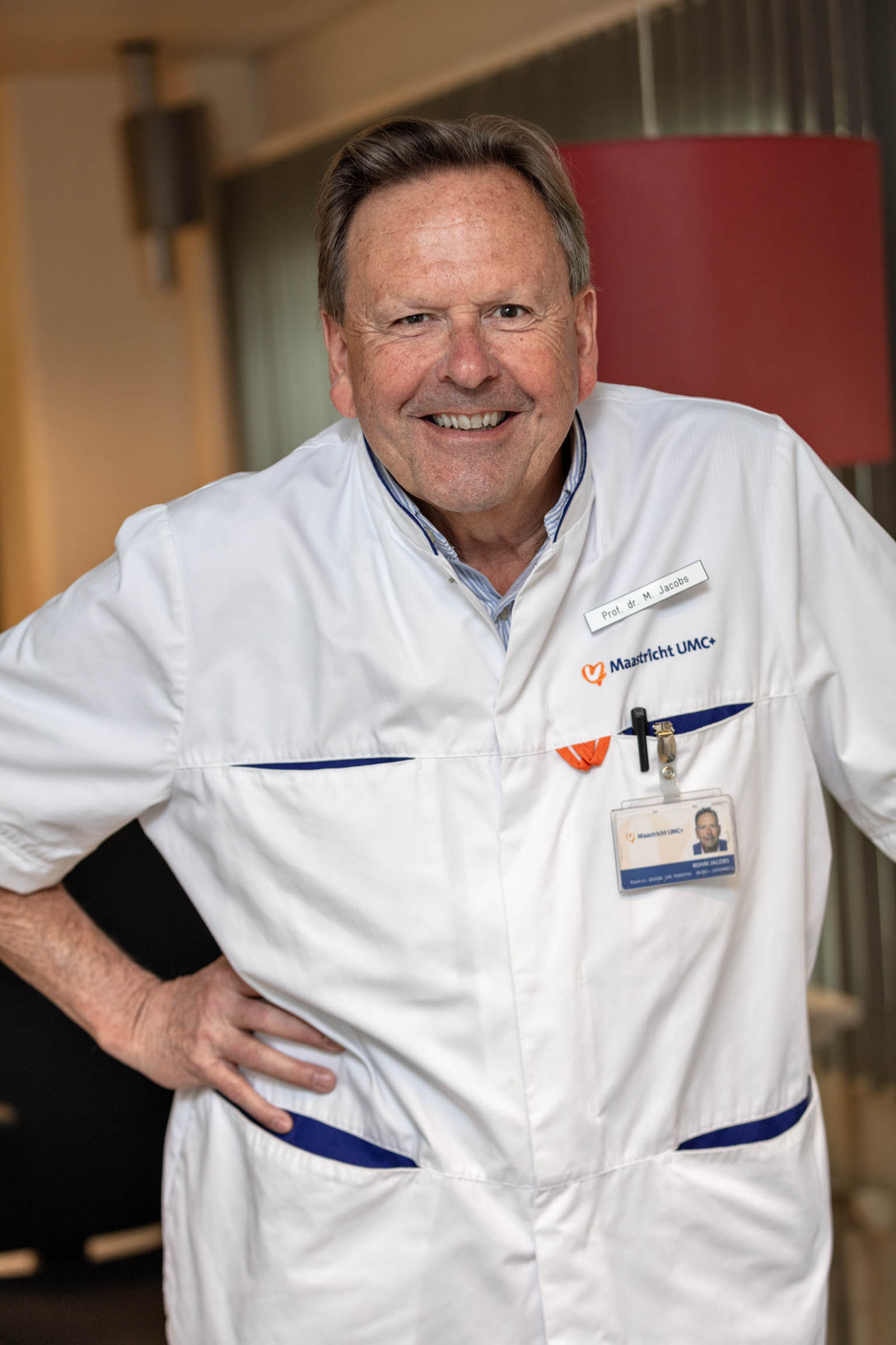Addiction: between personal responsibility and brain disease
The PhD candidate studied psychology, the supervisor specialises in law. Anna Goldberg is currently writing her dissertation on the role of addiction in criminal law from a neuroscientific perspective under the supervision of David Roef, endowed professor of Criminal Law. They have learnt a lot from each other, largely thanks to their different disciplinary backgrounds.
Should addiction lead to a lighter punishment if it is understood as a brain disease? In her dissertation, which she hopes to defend next year, Anna Goldberg studies addiction in criminal law from a neuroscientific perspective. Addiction has long mainly been regarded as a personal choice. Goldberg is investigating whether judges are sympathetic to the view that it could result in diminished responsibility, and whether neuroscientific arguments could play a role in this shift in perspective. “These are research questions that emerged from the course Law and Neurosciences,” David Roef says. And they have yielded surprising results.
“During sentencing, judges rarely refer explicitly to the role of addiction. They often deal with it in combination with other problems and give precedence to intellectual disabilities or personality disorders,” Goldberg explains. “I found it surprising that lawyers almost never try to excuse their client’s actions on the grounds of addiction.” Roef suspects that they want to avoid drawing attention to the notion of personal responsibility, preferring to focus on disorders that judges do take into account. “People in the Netherlands have conservative views when it comes to personal responsibility. Lawyers anticipate the simple and widespread belief that addiction is ultimately your own fault.”
Capabilities approach
In her study, Goldberg contrasts two views of addiction: the concept of personal responsibility versus addiction as a brain disorder. She shows that both views neglect what psychologists call the capabilities approach. “What does addiction do to your capabilities? What minimum capacities do you need in order to behave responsibly? Neuropsychology can provide useful information here. Think of comparative brain research on groups of addicts and non-addicts, or neuropsychological measures of reduced impulse regulation. Criminal law can use such information to better understand why a crime has been committed and which punishment is therefore appropriate and effective.” Goldberg examines the role of such neuroscientific knowledge in establishing criminal responsibility. To what extent is an addict able to anticipate consequences or control his or her actions?
The question of guilt
Goldberg hopes her research will kick-start a dialogue on personal responsibility in the context of addiction. “Any sane person will be sympathetic to the argument that a one-off drunken episode that leads to a criminal offence can’t be compared with a crime committed by someone who has been suffering from an addiction for ten years,” Roef says.
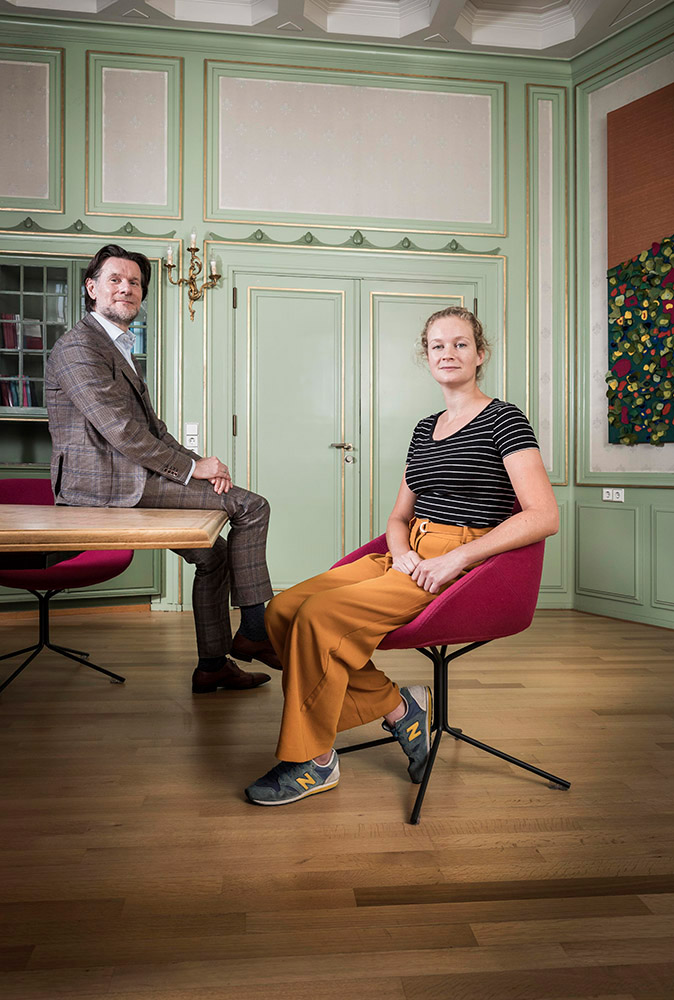
David Roef is associate professor of Criminal Law and, since 2017, endowed professor of Criminal Law and Neurosciences at Maastricht University. In that capacity, he coordinates the Law and Neurosciences course and the minor in Human and Legal Decision Making. In 2018 he was nominated for the UM Wynand Wijnen Education Prize and the country-wide Teacher of the Year Award of the Dutch National Student Association (ISO).
Anna Goldberg graduated from University College Maastricht in 2015 and obtained her master’s in Forensic Psychology in 2017. She is currently in the third year of her PhD at Maastricht University’s Criminal Law and Criminology department. In addition to writing her dissertation, she teaches various courses and supervises bachelor’s and master’s theses.
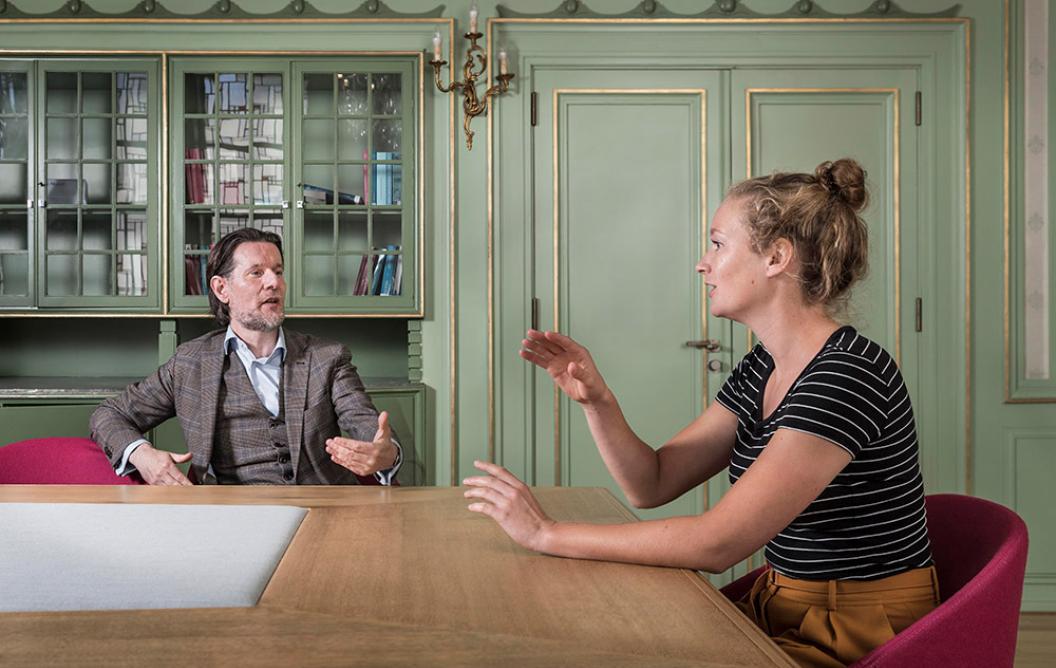
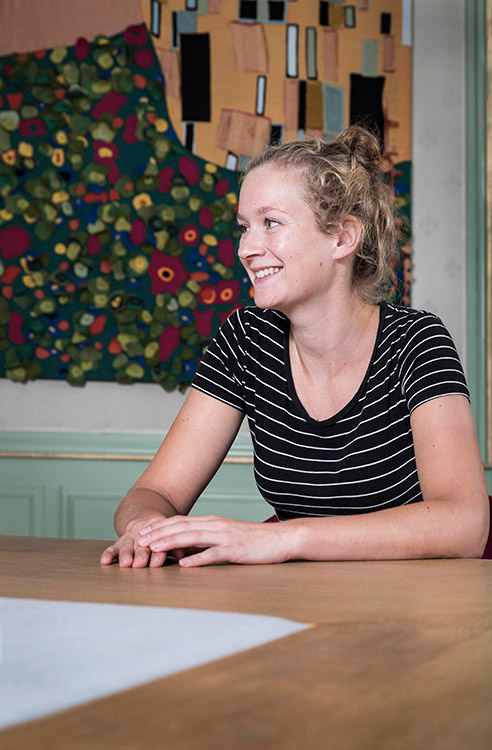
One option is to require a certain degree of foreseeability if an individual is to be held accountable for an action. “That would allow for a more nuanced view of addiction,” Goldberg explains. “Could the person have foreseen that they would commit a crime if they got drunk or high? If not, can you still hold them accountable?”
Reductionism
This raises the thorny question of whether neuroscience will ultimately undermine criminal law. If we are merely our brains, is there still room for free will and responsibility? This is primarily a philosophical discussion, Roef says. “Anna’s research focuses on the practical usability of neuroscientific expertise in criminal law. You also wouldn’t exclude a DNA test in a criminal case if everything we do is determined by our genes. The value of neuroscience in criminal proceedings is undeniable, without having to reduce everything to the brain.”
Incidentally, it is a philosophical discussion that is sorely needed. “Every discipline views people based on the data and knowledge of that discipline. Behind such insights and conclusions there’s always a risk of reductionism. That’s why interdisciplinary research is crucial,” Roef says. Goldberg’s research also has added value in this respect. “The question that it raises is valuable for many interdisciplinary studies. Neuroscientists look at how the brain works and what the consequences are, but it’s up to lawyers and politicians to debate this information and weigh up the different considerations. This should not be overlooked amid the need for certainty and data.”
Struggle
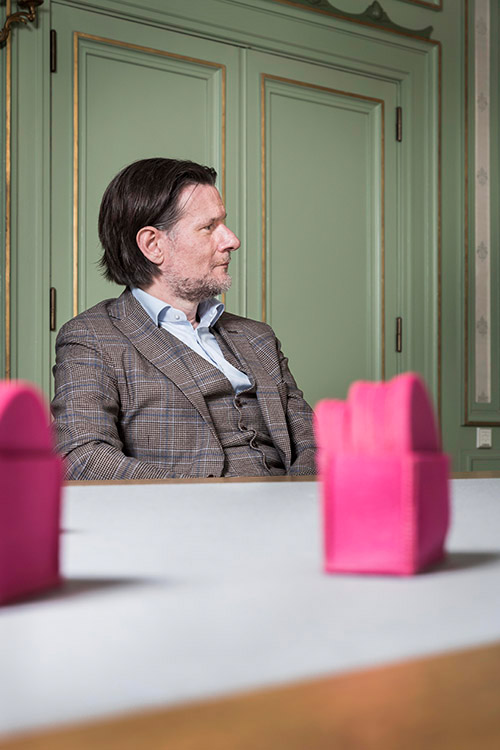
Both academics have learnt a great deal from each other, mainly due to the interdisciplinary nature of the research. “The legal way of looking at things is new and valuable to me. It’s quite normative, whereas in psychology we take a more empirical and experimental approach,” Goldberg says. “David’s more likely to ask: how should things be? What’s the purpose of criminal law? You can’t do much with bare data. The legal question is: how do we want to deal with this? What will society think of it? When we started collaborating, that was a struggle for me. I’d be there thinking we were talking about the same thing, and I’d discover later that we weren’t.”
Roef: “Anna has given me more insight into the capabilities approach. Law revolves around the core question: when are you responsible for your actions? Even a child understands that this implies certain capacities. We don’t hold a demented elderly person responsible for their actions. So from the neurosciences, the discussion arises: what does addiction do to our capabilities? That knowledge can lead to different legal norms and standards. If people have diminished capacity, does criminal law demand too little of them, or too much?”
Also read
-
Dani Shanley and Joshi Hogenboom on synthetic data, the pains and gains of interdisciplinarity, and why AI likely won’t release us from having to study the world we live in.
-
Lee Bouwman, a vascular surgeon and endowed professor of Clinical Engineering, specialises in the implementation of groundbreaking healthcare technologies. The key to success, he says, lies in the collaboration between engineers and clinicians. This approach has already resulted in a range of...
-
The surgeon who, defeated, leaves the operating room after hours of surgery, to tell the relatives that, unfortunately, the patient did not make it. This role, which most people only know from films and TV series, was one that vascular surgeon Michael Jacobs had to play more often in his career than...
- in Featured
- in Researchers

